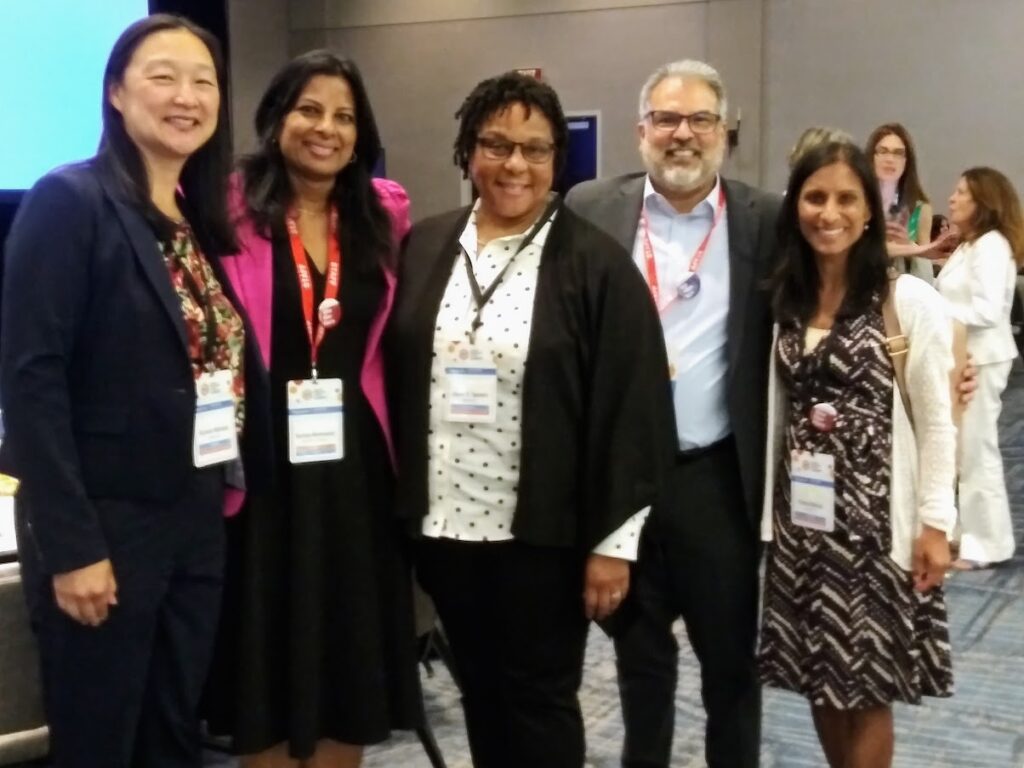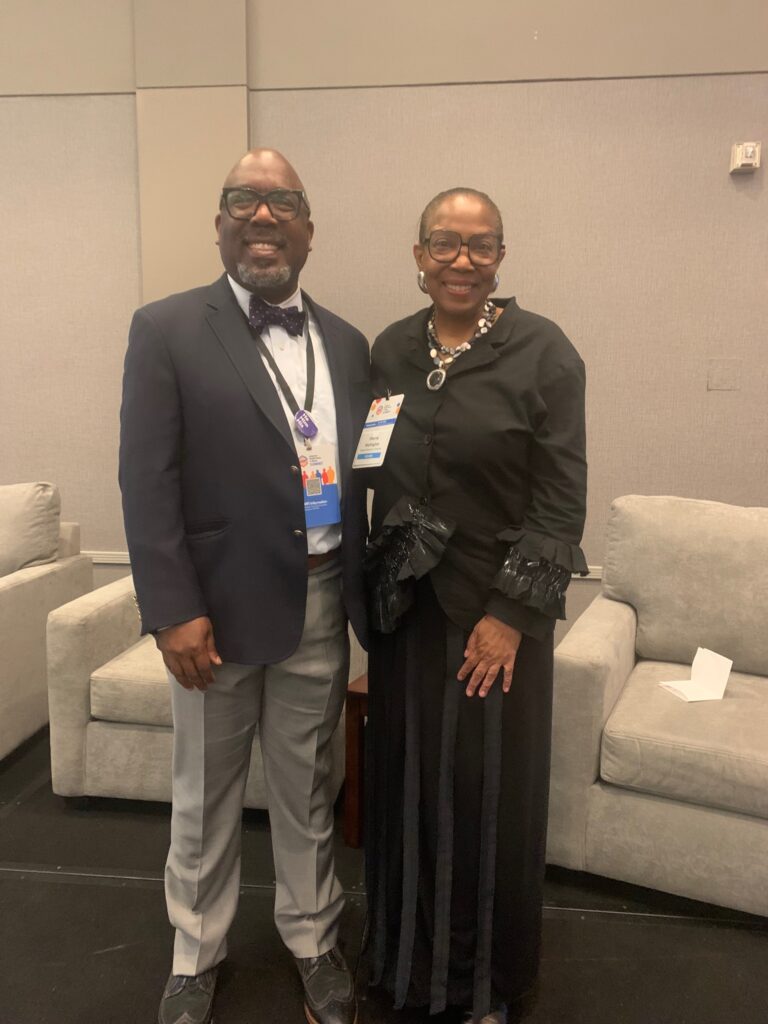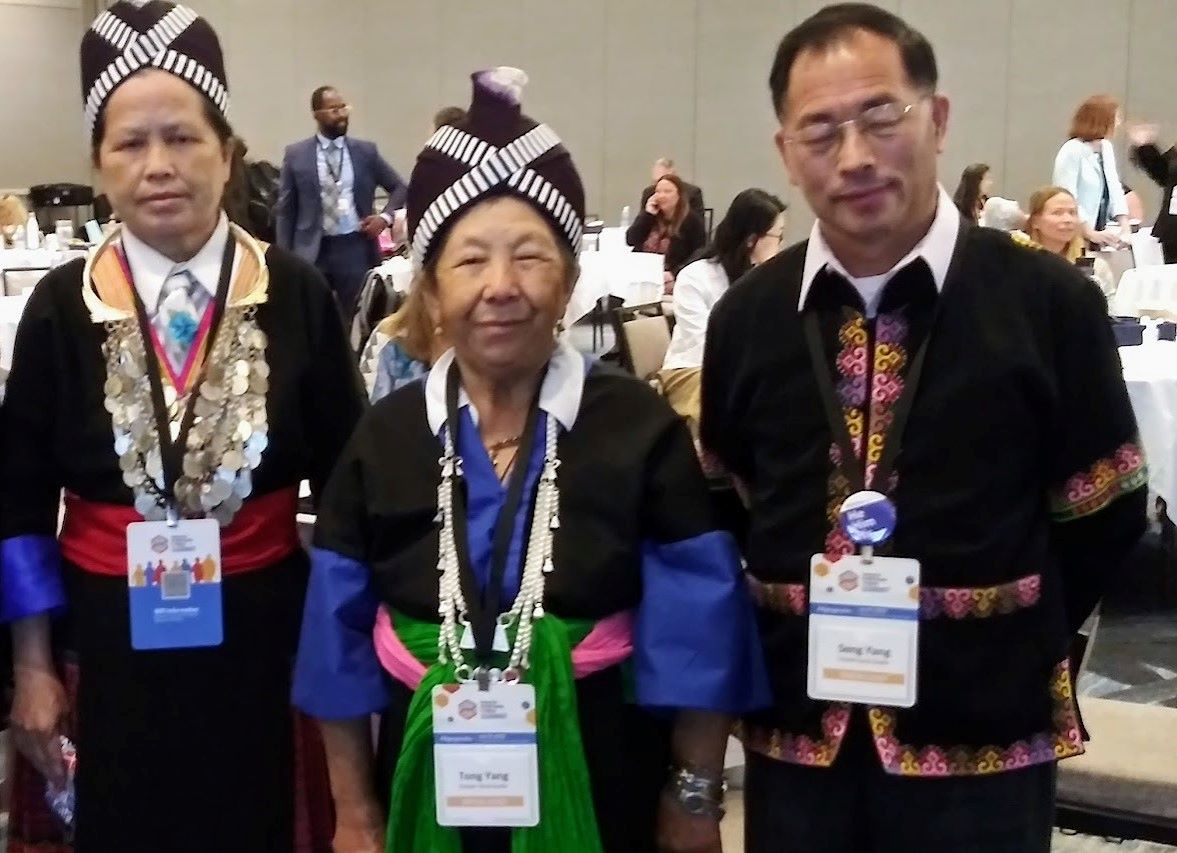BURBANK, California — The SCAN Foundation held its first summit here July 19 for the organization’s new initiative: Advancing Health Equity in Aging.
The foundation launched the 5-prong initiative last October and plans to implement it over the next 3 to 5 years.
People over 65 are one of the fastest-growing populations in California. In 2030, the elder population of the state is expected to jump to 8.6 million, according to data from the Public Policy Institute of California. In the next decade, seniors will comprise more than one quarter of California’s population.
The Complex Health Care Maze
“We are aiming to elevate the voices of people who are living with inequities,” said The SCAN Foundation President and CEO Dr. Sarita Mohanty, kicking off the day-long summit. “As a physician, I have seen firsthand that older adults, people of color, those with low English proficiency, or those with geographies where health care is scarce, go through so many challenges in accessing basic health care,” she said. Mohanty noted that as an Indian American woman, she herself has faced racism and discrimination.

The SCAN Foundation Board Member Dr. Cheryl Phillips echoed Mohanty’s sentiment. “This summit is really about making invisible people seen,” she said, adding that older adults, immigrants, low income people, and those with disabilities often get lost in the complex system of health care delivery in the US.
“We are making a movement, not just in California, but as a foundation to build on for the rest of the nation,” said Phillips.
Social Determinants of Health

Dr. Sherrie Wallington, Associate Professor of Health Disparities and Oncology at the George Washington University School of Nursing, said: “We have not been intentional about understanding the social determinants of health. It is important that people who are impacted be at the table to create the health equity lens.”
“If we build it, they may not come if they are not invested,” said Wallington.
Rigo Saborio, Vice President of Programs, Equity, and Community Impact at SCAN later told Ethnic Media Services that the Advancing Health Equity in Aging initiative aims to complement California’s Master Plan on Aging, which includes inclusion in its goals.
“Health care disparities abound among older adults, and they hit vulnerable and marginalized communities especially hard,” he said. “We have designed a vehicle to address many of the root causes that have led to these outcomes, including discrimination.”
A critical component of the initiative is bringing together organizations and individuals already working to address these issues, said Saborio, noting that the steering committee for the initiative is comprised of many health equity leaders, including the California Department of Aging, which was key to developing California’s MPA, a 10-year plan launched in 2021 via an executive order from Gov. Gavin Newsom.
Susan DeMarois, Director of the California Department of Aging, said at the summit: “We are working towards a California for all, for everyone, whether documented or undocumented.” She noted that inclusion was a key component of California’s Master Plan on Aging.
Community Stories
The initiative also aims to hear from impacted communities directly. “We want to hear about the obstacles they face as older adults and to tell us what they need, and then hone in on those as our priority areas,” said Saborio.
One of the highlights of the summit were a series of videos of older adults discussing the challenges they were facing in accessing health care, along with other obstacles in their lives. The videos were produced by the Greater Good Studio, in partnership with The SCAN Foundation.
Janet Spears, CEO of the Metta Fund, introduced Anthena Gore and Sara Yang of the Greater Good Studio, who had worked to create the videos.
“We believe in a future where everyone can age equitably. The answers are in our communities. We need to shut up and listen,” she said, prompting a long laugh from the audience.
“Too often, the voices of our older adults are left out. You have to hear what they’re saying and listen to their stories,” she said.
Lost Souls
The Greater Good Studio captured the stories of over 100 older adults from Imperial, Shasta, and Butte counties as well as San Francisco and San Diego. “We must acknowledge the legacies of trauma, witnessing genocide, racism, and ableism on a person’s health,” said Yang.
“Unhoused and incarcerated people struggle just to be seen as a person who is deserving of health care,” said Gore.
One video featured Tong Yang, a Hmong woman from Butte County. “My doctor told me my depression was causing me to be physically sick. My soul was lost when I left my country and escaped to Thailand,” she said.
Lived Experiences
Denny Chan, Managing Director of Equity Advocacy for the organization Justice in Aging, moderated a panel of three older adults who shared their lived experiences, including Ruth Himan, a former engineer who with her husband went into medical poverty when he became diabetic.
Harry Wong, who was also featured in a video, said he is frustrated by his inability to speak with health care providers before his needs become emergencies. “It’s all email, and voice mail,” he said, noting the inordinate amounts of time he spends trying to access care. Wong said he has decided to participate in the health equity movement because: “I didn’t have a voice for so many years.”
Panels also featured speakers on the challenges of building momentum, the importance of qualitative data which tells a richer story than quantitative data, and next steps for the Advancing Health Equity in Aging initiative.
ECO
This fall, The SCAN Foundation will send out a request for proposals to fund three Equity Community Organizing — ECO — groups to find and address issues both in rural and urban communities. Each selected organization will receive $225,000 in funding for the 18-month project.
Keynote speaker Ai-jen Poo, president of the National Domestic Workers Alliance, spoke about the challenges of gaining rights for domestic workers.
“They are an incredibly undervalued resource. We don’t value care in America,” said Poo, whose speech will be featured in an upcoming story.




